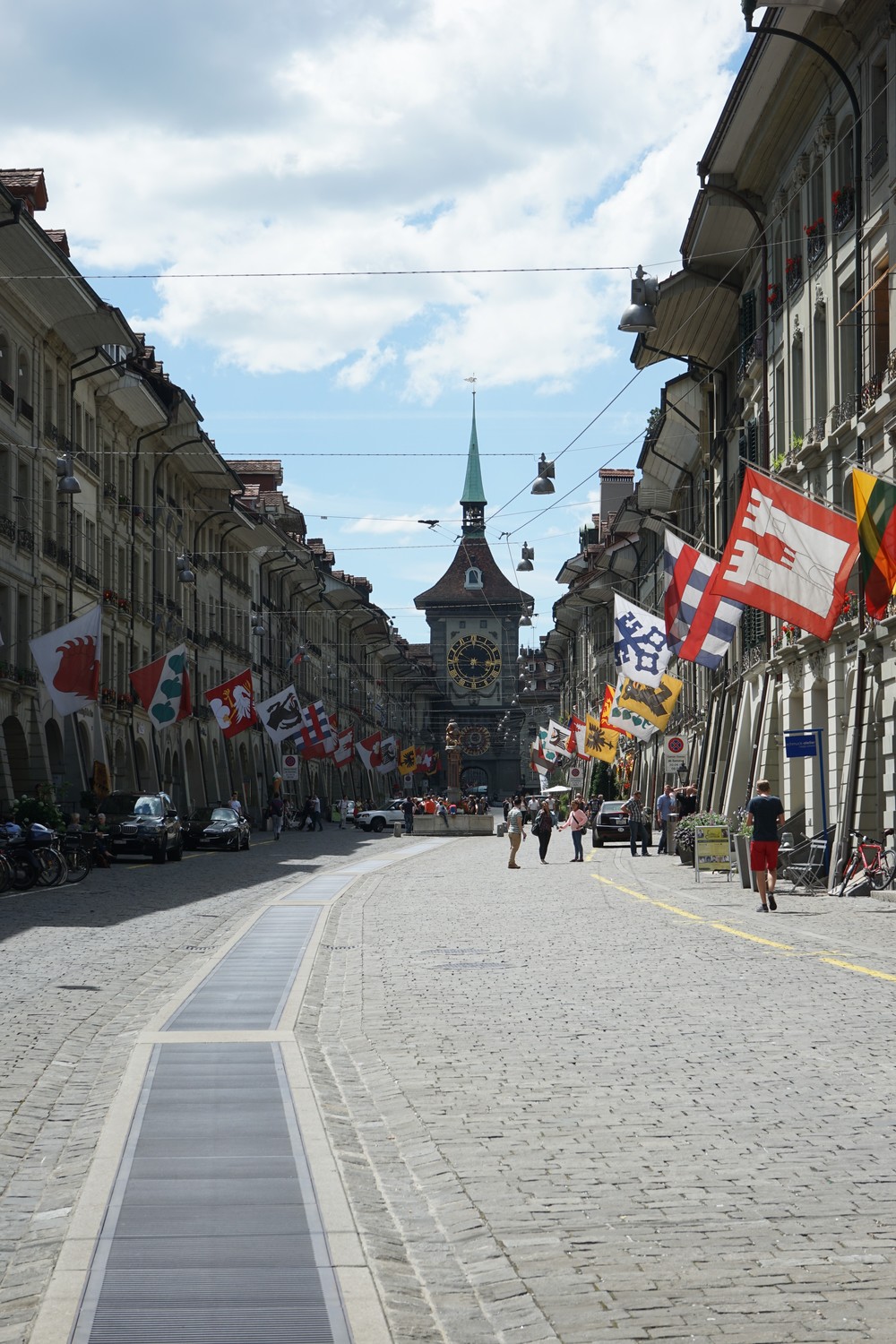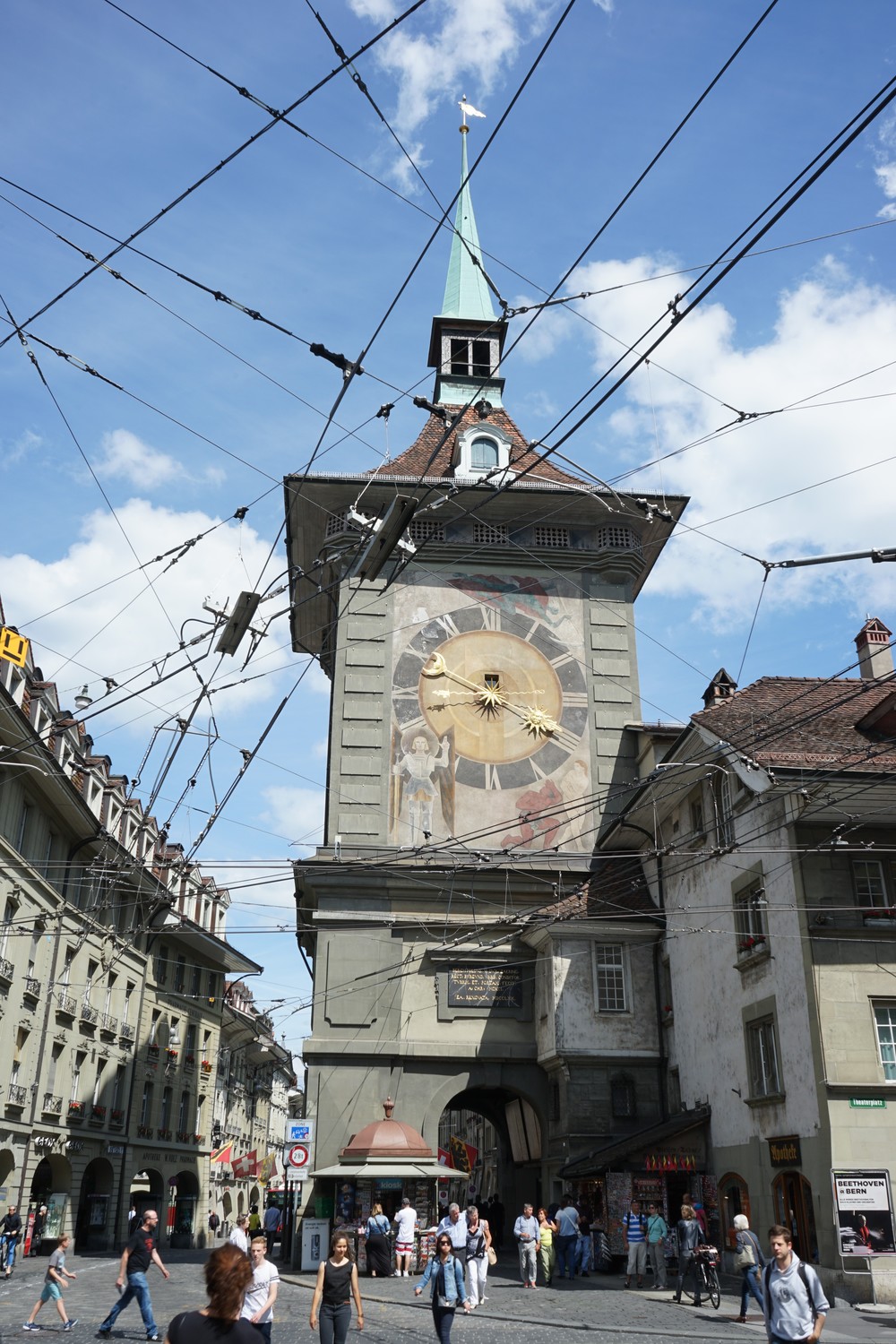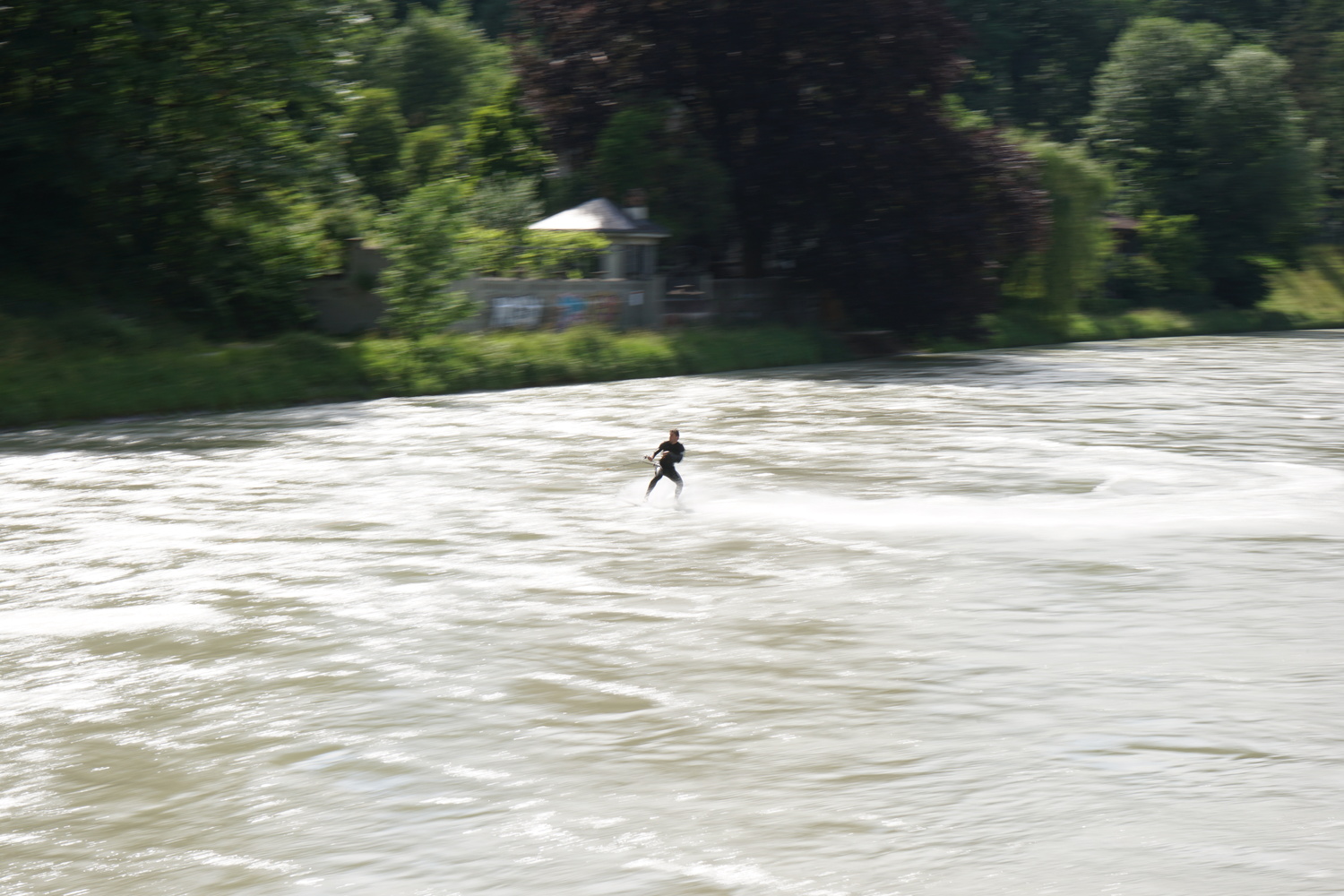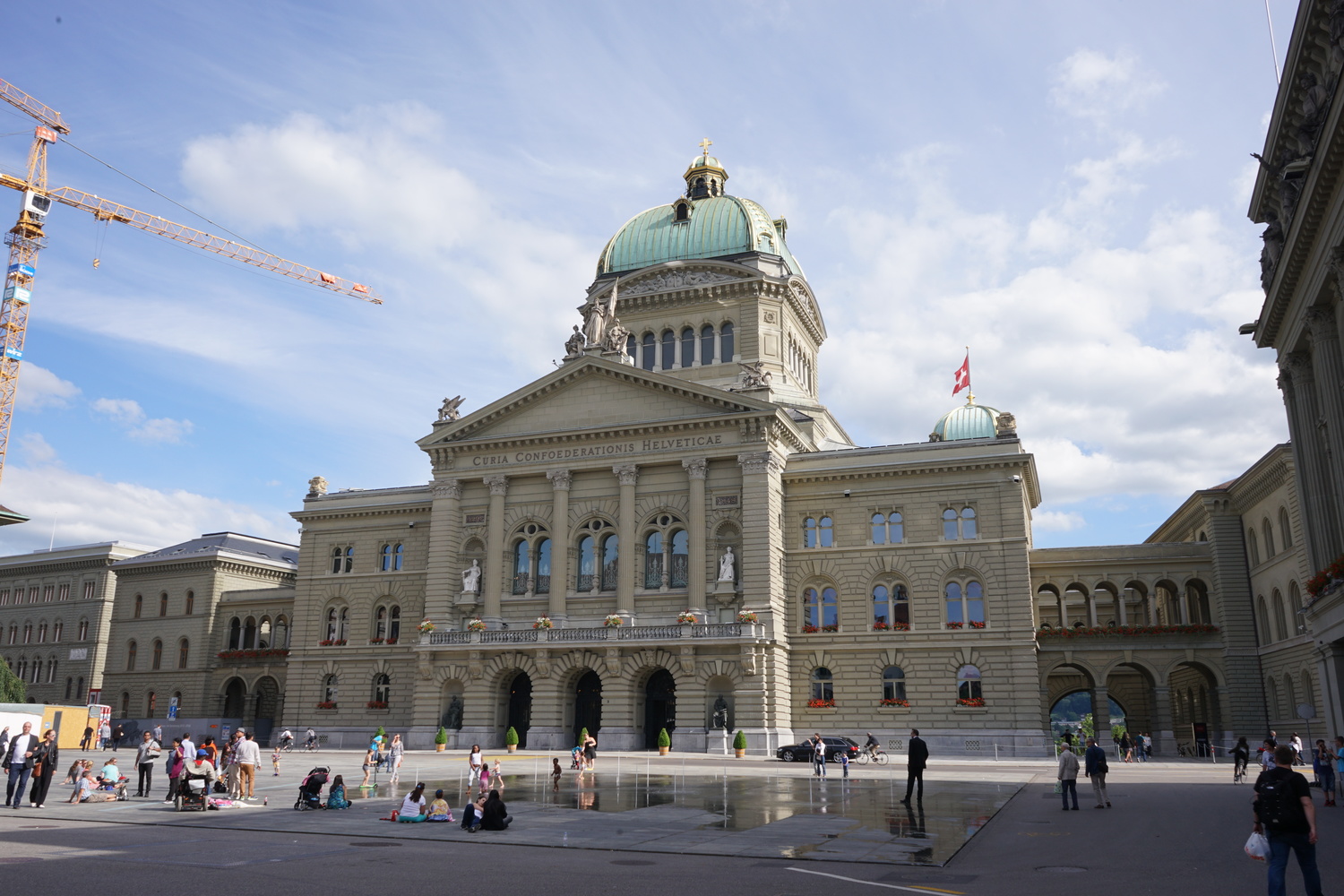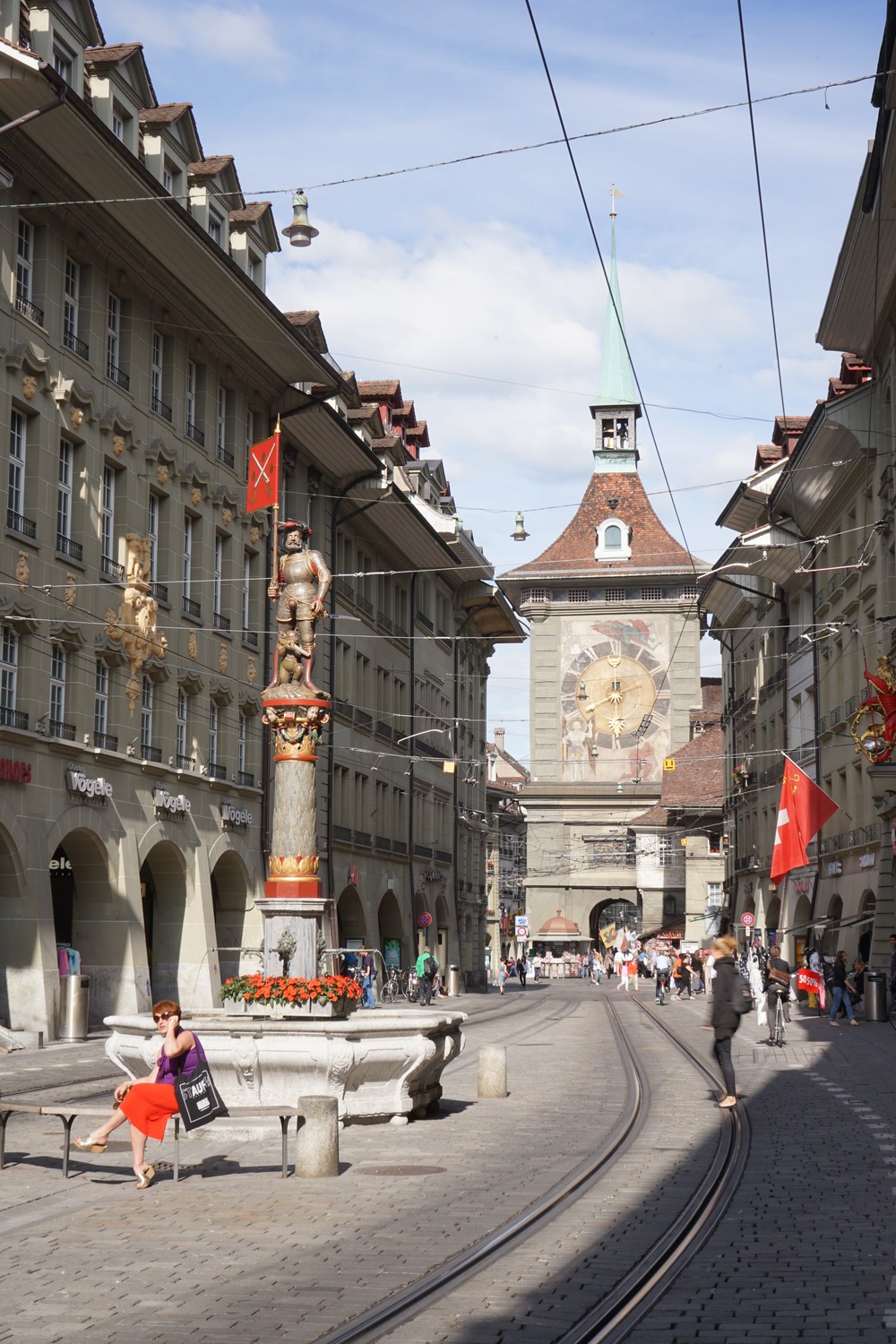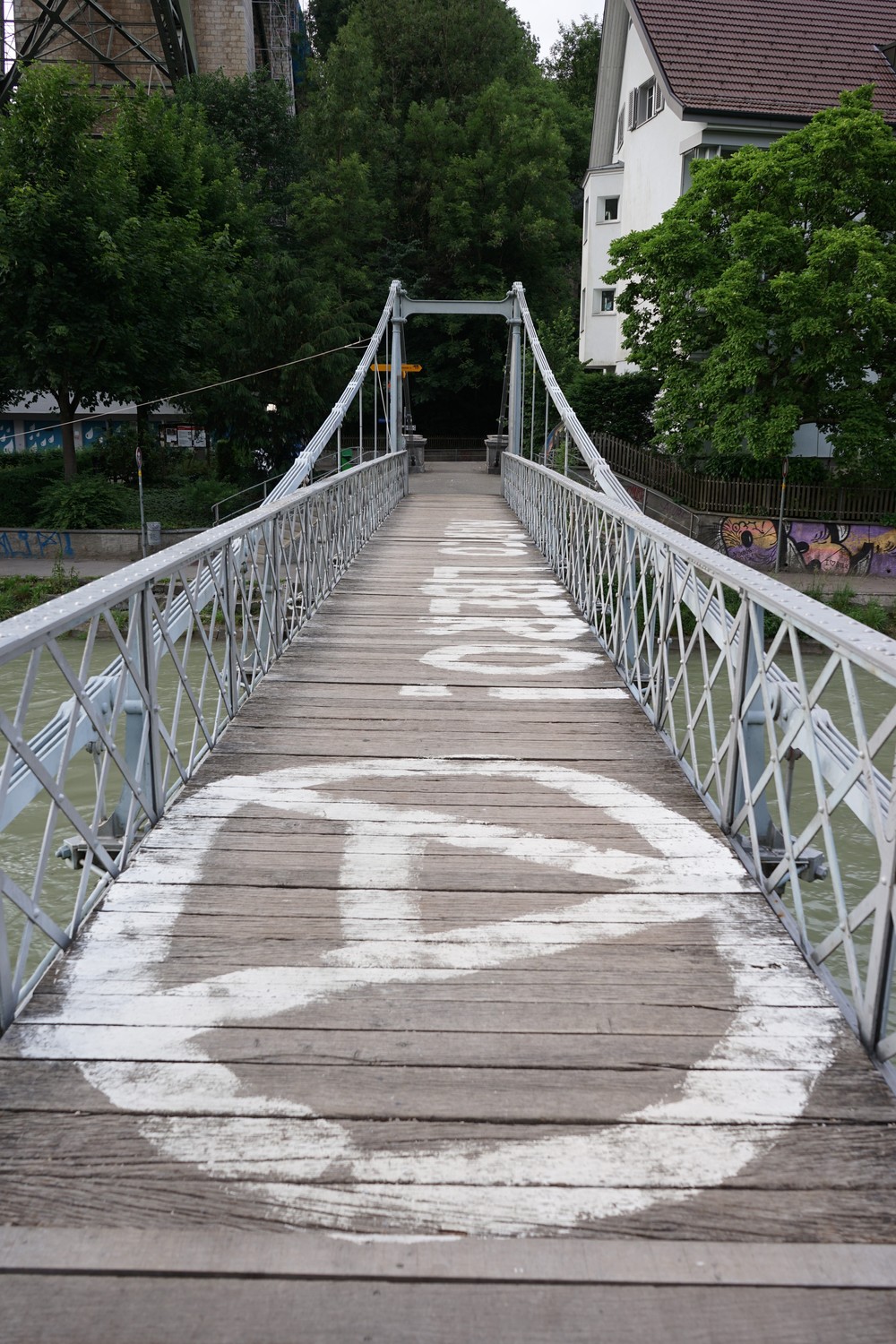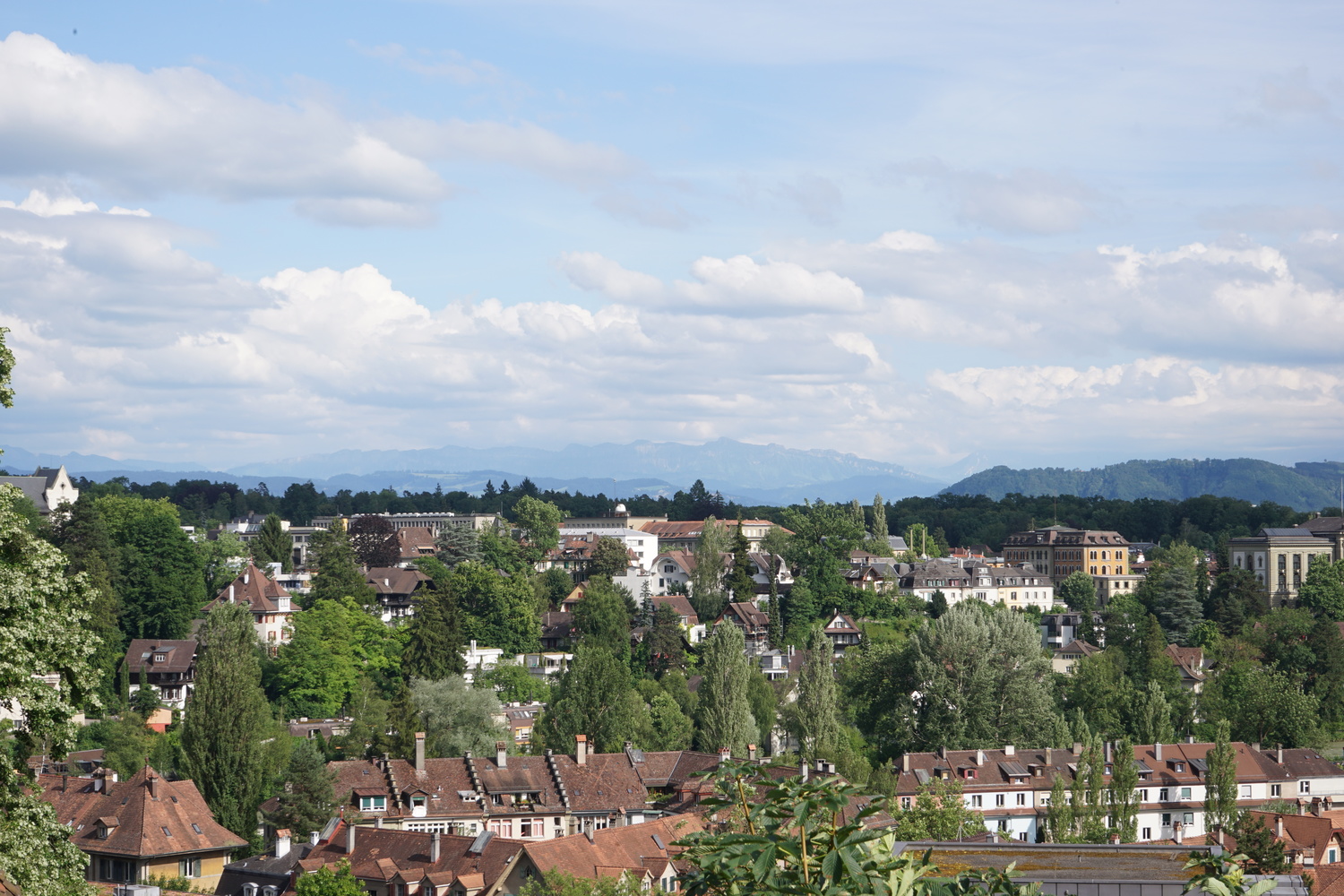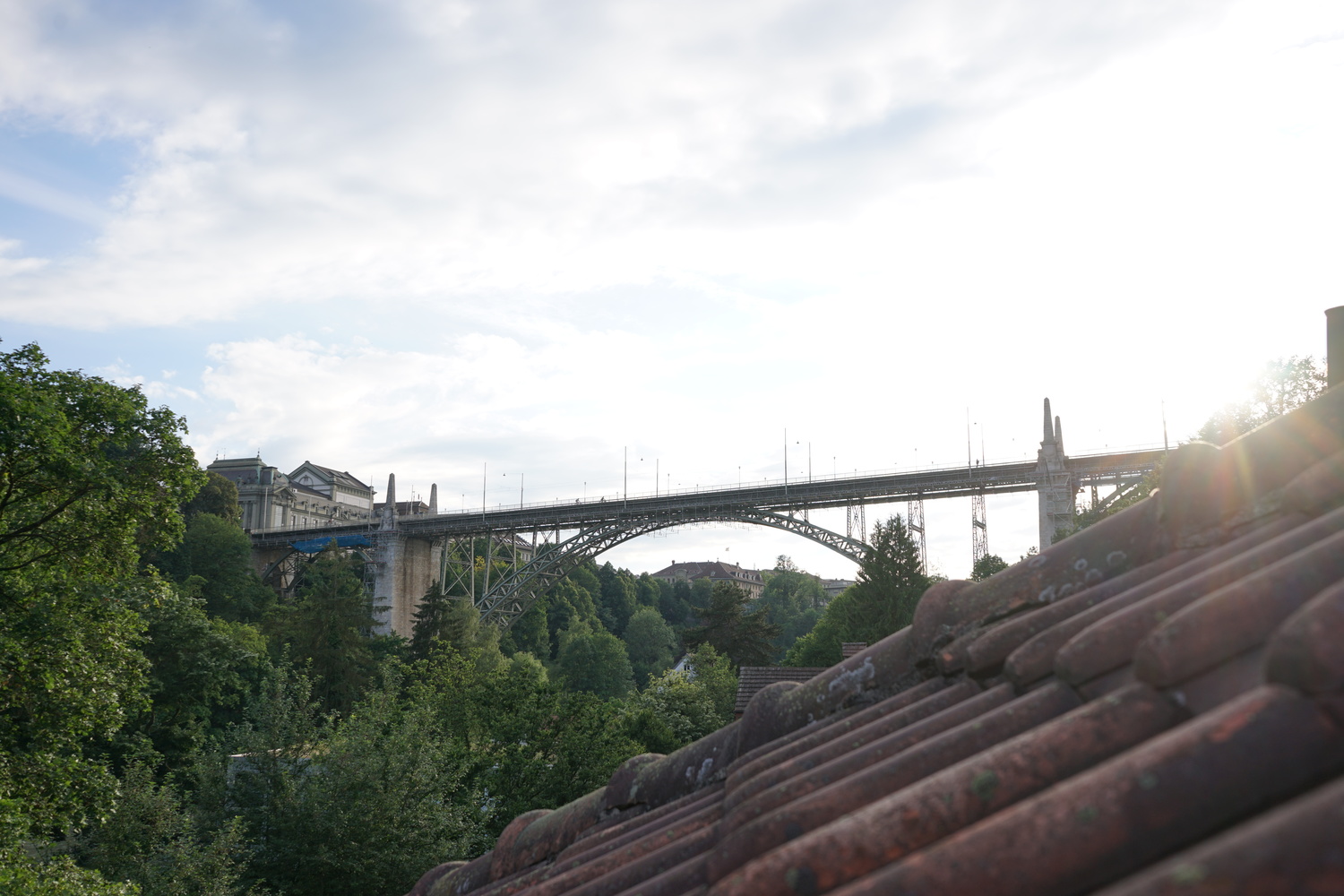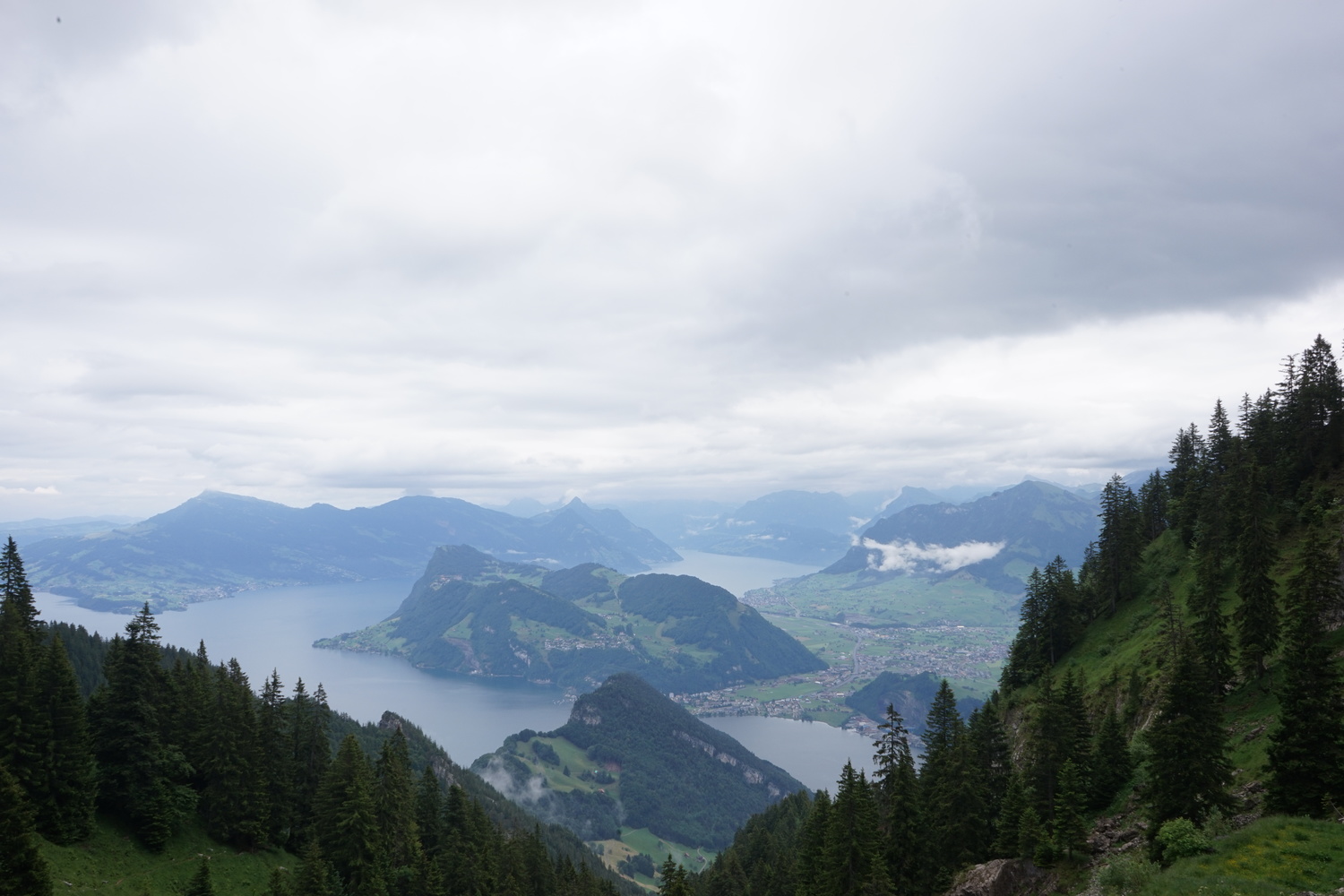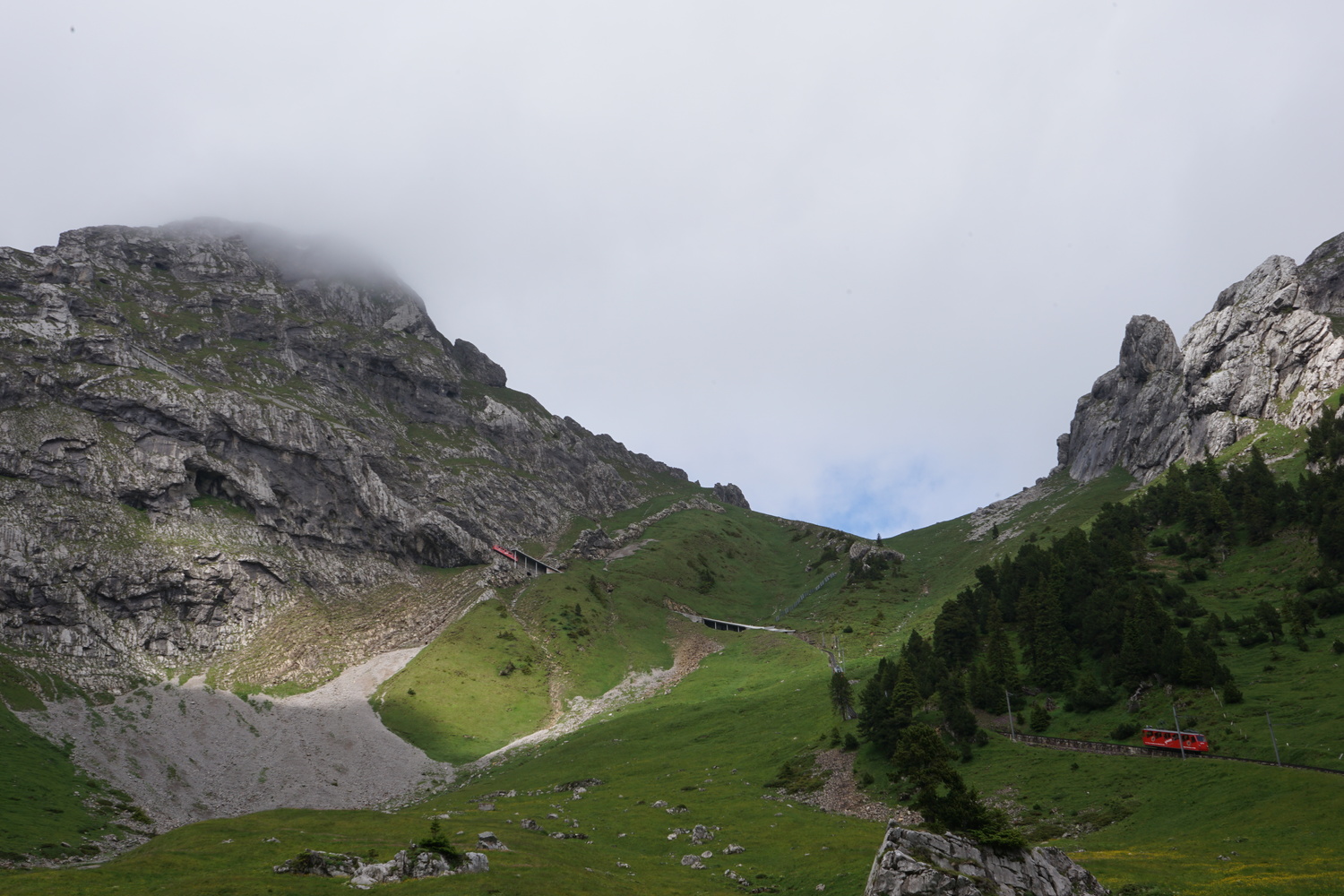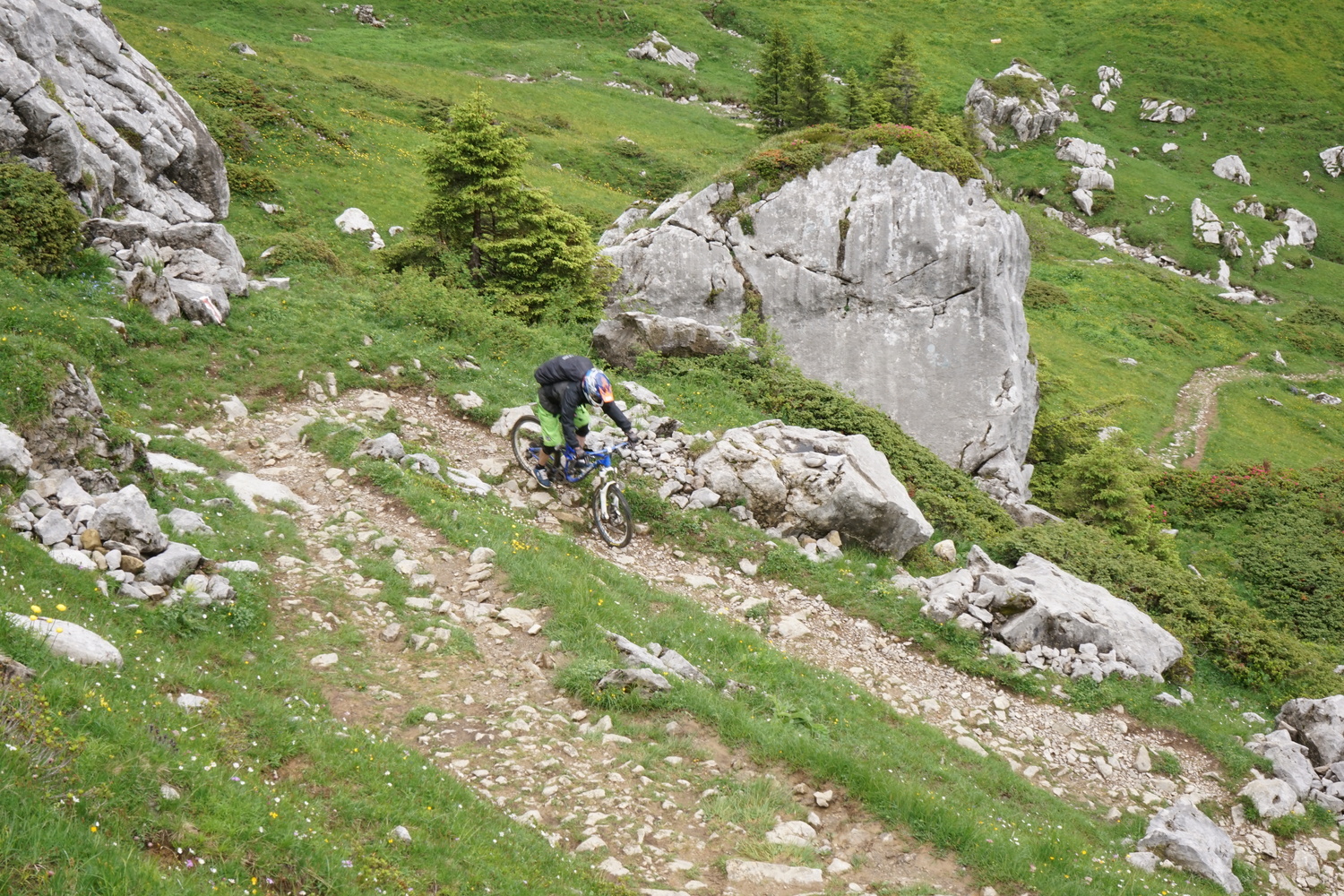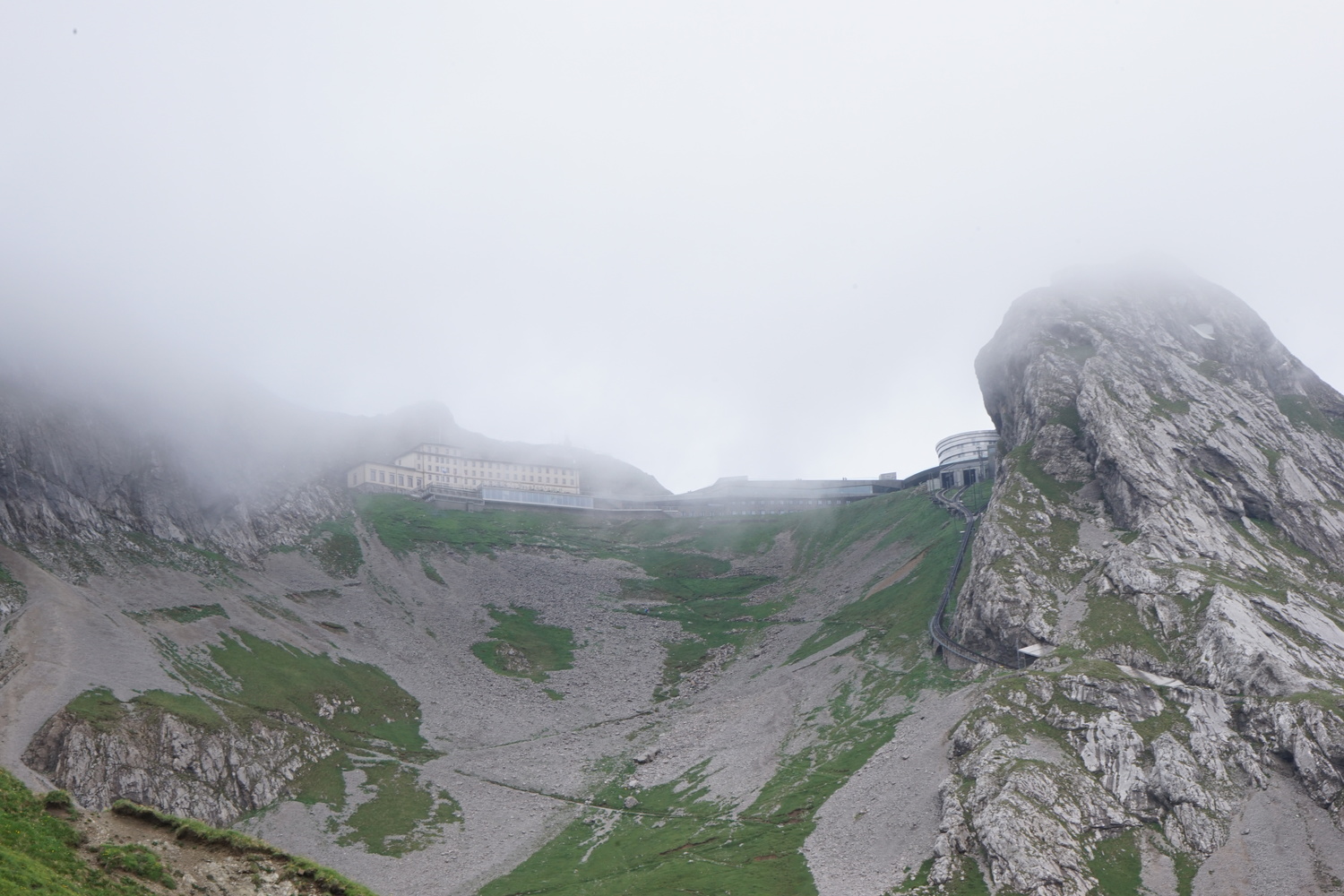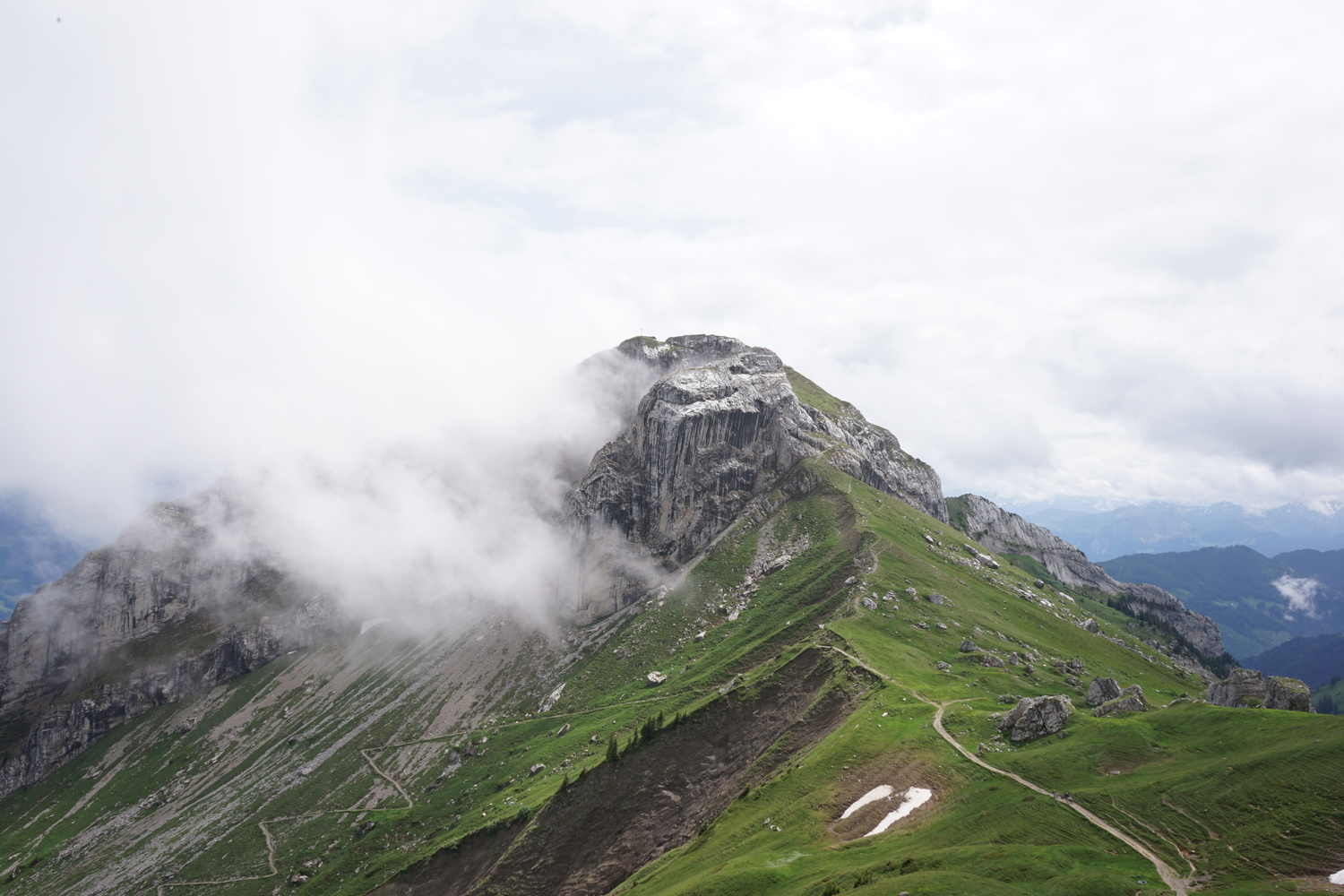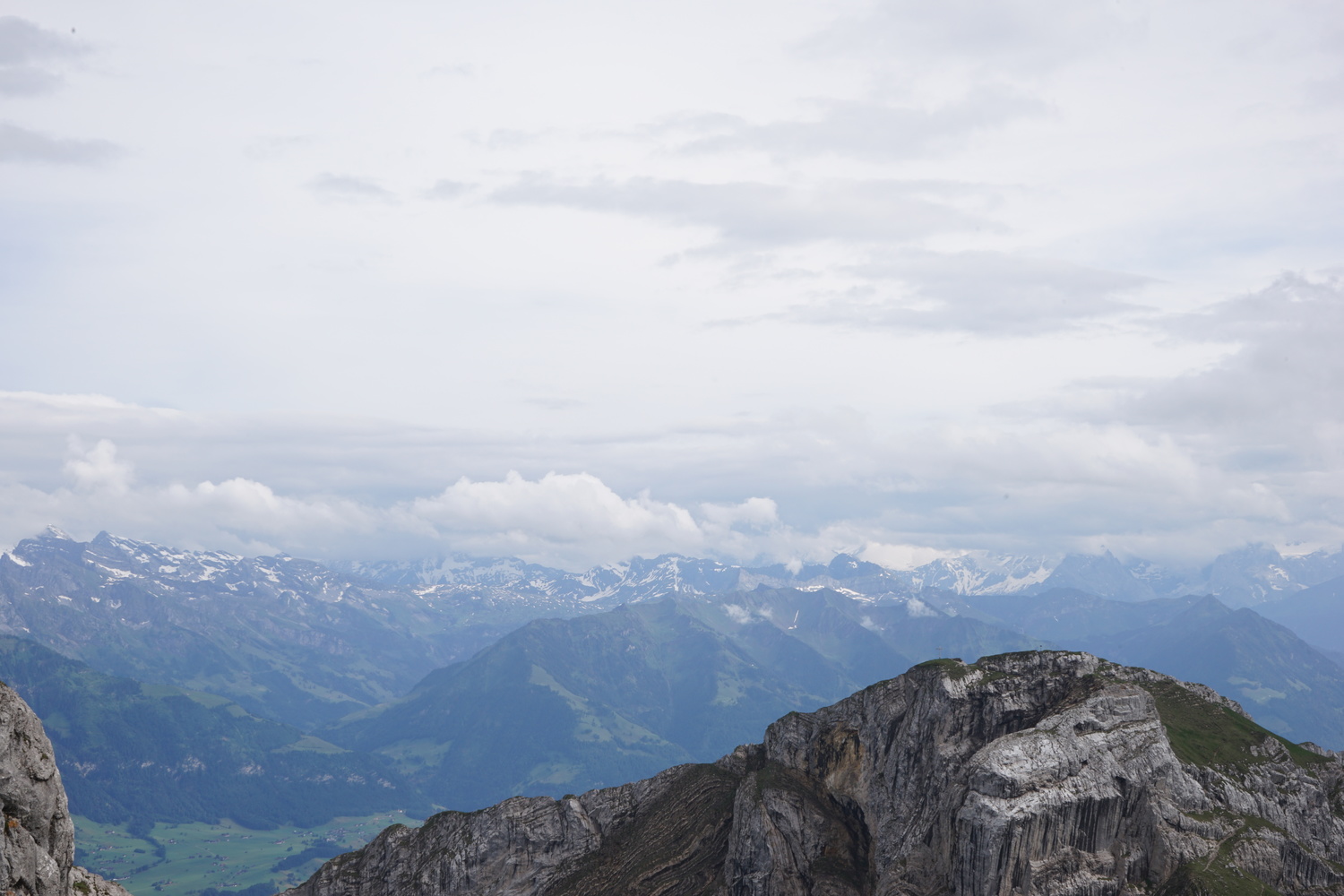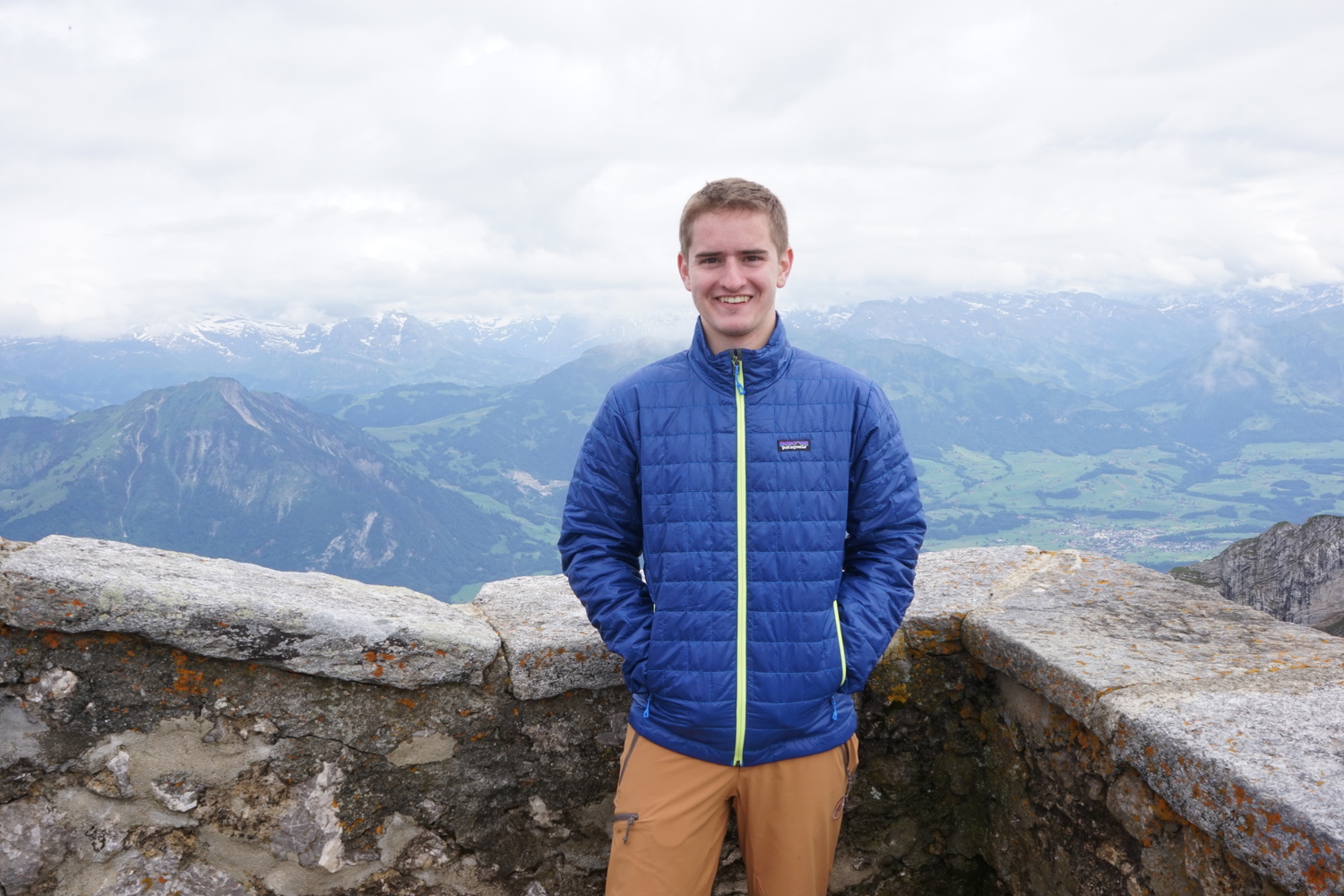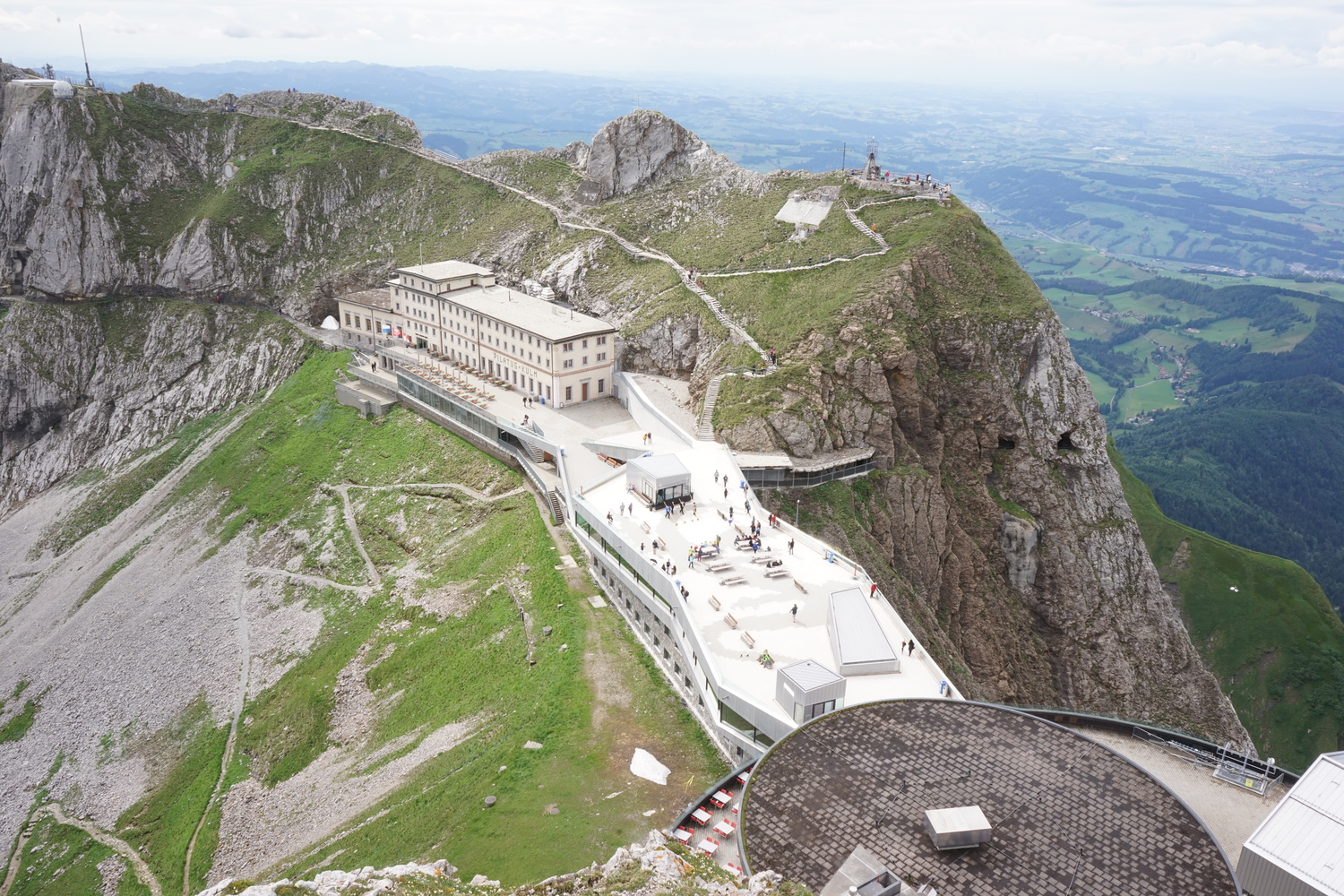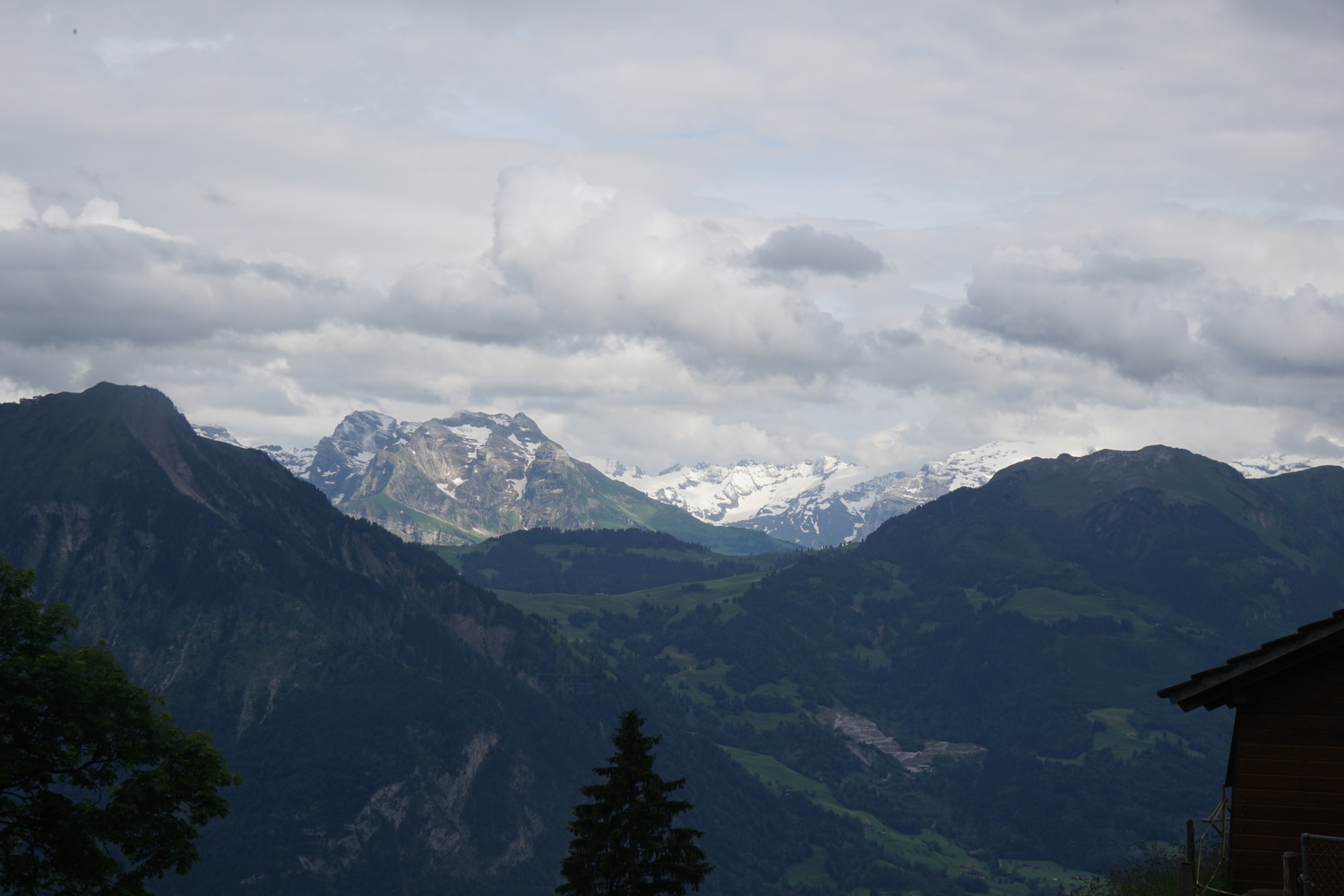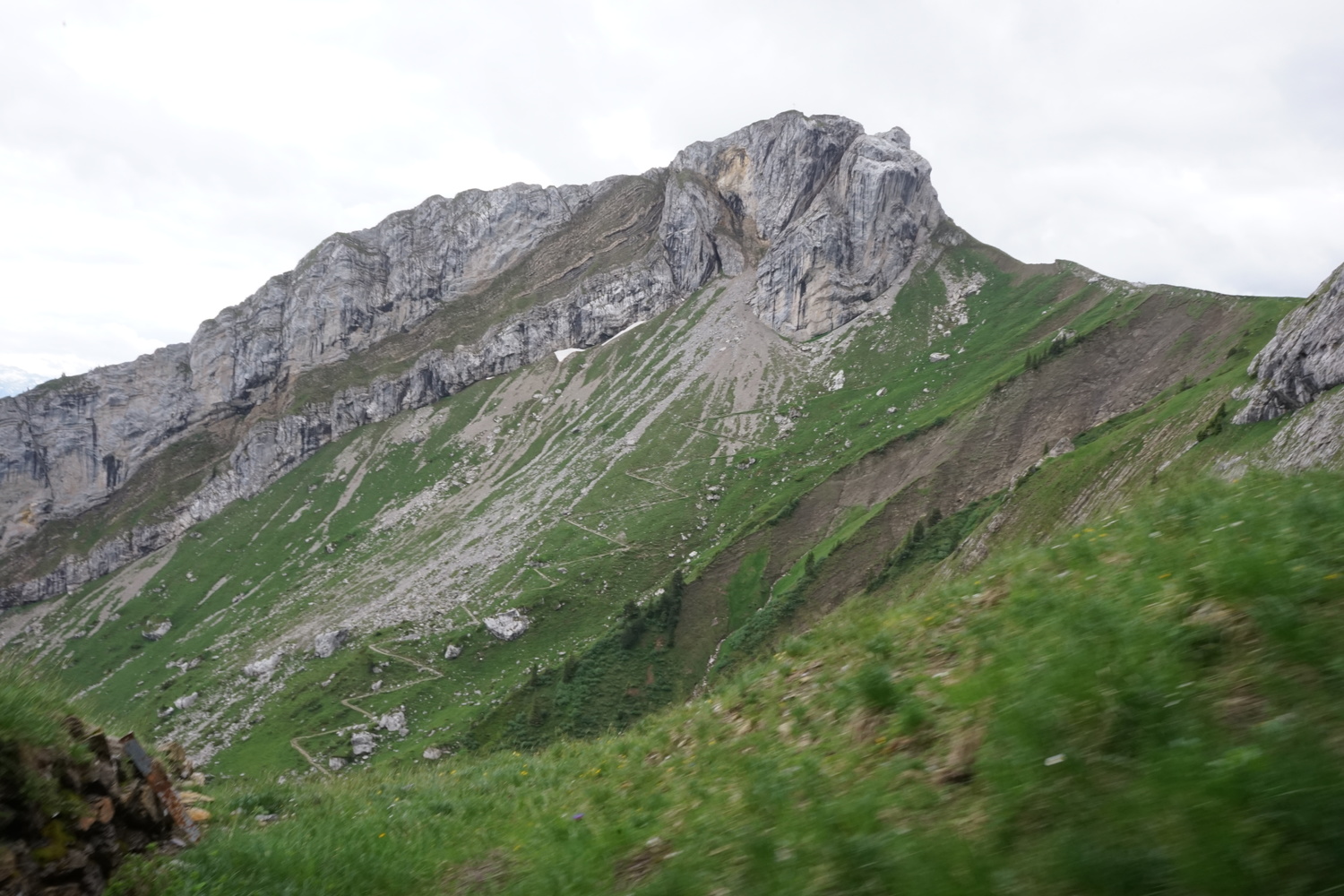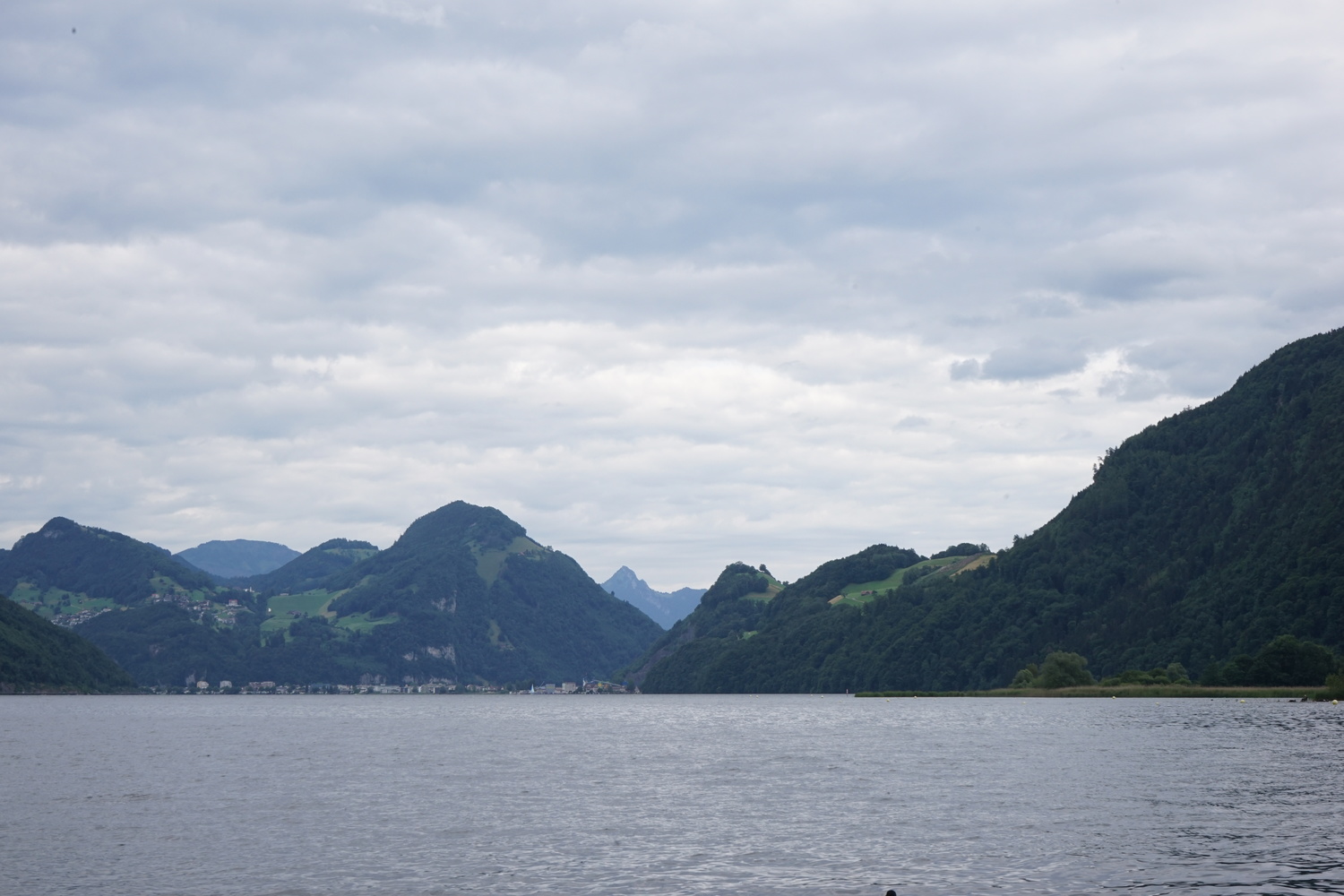Bern and Luzern
The first part of my time in Switzerland was spent in Bern, which is somewhat atypical of Switzerland in that it isn't in the Alps. Bern is an old city which is almost completely made of one shade of sandstone. There are also fountains placed at regular intervals along the streets, which were originally colored very brightly to show Bern's opulence.
Today Switzerland's opulence comes largely from tourism, and you can see this in Bern, where the primary street is lined with stores and restaurants, all of which are incredibly expensive. I've heard that Switzerland's expensive, but used to think that it was comparable to the rest of Europe. It isn't. Not just lodging - I walked into a Burger king at one point and paid the equivalent of $13 for a burger and small fries, but fast food cost about half that in Germany. And as I can't reiterate enough, currywurste is awesome.
Bern also has a lot of trams throughout the city, although it seems like there's not very many traffic rules. People just walk in the middle of the street, along with cars and trams. This actually seems to be par for the course in European cities.
A note about stereotypes - there are two strange stereotypes I've heard about Americans that never made sense before. First, "Americans are loud." Second, "Americans clap at everything." I think I understand the first one now - I think it doesn't really refer to individual Americans, so much as it does to groups of them. I've noticed that groups of Americans can be pretty loud when there are multiple conversations going on, with everyone trying to talk over everyone else. I haven't noticed this happening as much with Europeans for some reason, but I'm not sure what prevents that from happening. I'm not sure how accurate the second one is, but I will say that I've only seen one group of people clapping, and I think they were Americans.
After Bern I went to Luzern, which I didn't really see very much of the city. I took a train on the 20th, and it was raining from the time my train arrived to the time I went hiking the next day. The hike I did was a mountain called Pilatus, which is on the outskirts of Luzern. There is a "cog railway" going up the mountain, which is comparable to a funicular. Purportedly, it is the steepest cog railway in the world. I started hiking in drizzling rain at the railway station in Alpnachstad. The hike was about 5500 feet of elevation change. One thing that's slightly annoying in Switzerland is that hikes aren't labelled in terms of distance, but rather time, and sometimes the time isn't even labelled. So the hike took me about 4.5 hours, which I think probably translates to about 5 miles.
When in the mountains, you can expect the weather to change extremely quickly, whether it is from raining to clear or vice-versa. The only place I've been where this doesn't hold true is in the Olympic range, where I think the NOAA could replace radar data with a year-long message of "Overcast with light rain, highs in the mid-fifties." The weather on Pilatus, however, was appropriately unpredictable, and it oscillated between raining and sunny the whole day. The hike went through deciduous forest, cow fields, alpine grassland, and barren rocks. I got my first real view of the Alps from the top of Pilatus, where it was actually clear. The views were a spectacular 360-degree panorama.
I think that the Alps are probably the most-developed mountain range in the world. They are extremely rugged and high, with a lot of seemingly inaccessible peaks. But the Swiss haven't just climbed the mountains, and they don't just live there, either. The Swiss conquered the Alps. Instead of planting flags at the top of mountains, the Swiss plant hotels and restaurants. And instead of carving trails and hand-holds into the sides, they build rail lines and cable car stations. To my knowledge, no other mountain range is so accessible. To illustrate: you could go from Geneva to the top of the Schilthorn, or from Zurich to the Jungfraujoch, without ever stepping out from under a roof.
This is wonderful, because it means that everyone can come and experience these peaks. But in a way, it takes the sense of adventure out of it. In the Cascades, I can climb to the top of any peak, look out, and see no trace of civilization. But in Switzerland, no matter where you are, you know there is a hotel above you, and all it takes to get there is 40 bucks and 40 minutes on a train. So when you get to the top of a mountain, you can expect to mingle with people decked out in flip-flops, perfume, and "I♥\nNY" t-shirts.
